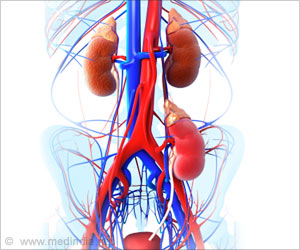Highlights
- Kidney donation from older people has for long been discarded based on age as a criteria, however, a new study finds that good quality kidneys from older patients can be transplanted successfully.
- The patient and kidney survival rate from patients over 80 years is similar to the rates from people over 50 years.
- The discard rate was found to be more among people over 80 years than among other age groups.
- 50-59 years
- 60-69 years
- 70-79 years
- 80 years
Organ Donation
Organ donation is when healthy tissue or an organ is transplanted while the donor is alive or immediately after death. Kidney transplant is considered to be the first line of defense when the kidneys of the patient fail or are unable to function properly. However, due to the lack of kidney donors, dialysis is carried out to facilitate removal of waste.According to The Centre For Disease Control
- 20 million people live with chronic kidney disease
- 600,000 are on dialysis
- 100,000 await kidney transplant
- 16,000 kidney transplants are carried out every year.
Addressing Shortage of Kidney Donors
The number of people who await a kidney transplant is huge, but the number of kidney donors is very small. A considerable number of kidneys are rejected from transplantation citing old age of the donor. Efforts are being made by scientists to determine if such kidneys should be discarded or if they can be effectively used in organ donation.The study was published in The Clinical Journal of the American Society of Nephrology (CJASN) to determine if quality kidneys should be discarded only because they are from a donor who is older. University of Torino’s Dr. Luigi Biancone and colleagues analyzed kidney transplant from diseased patients that were performed at The University of Turin, during the period from 2003 to 2013.
- 647 kidney transplants were analyzed.
- From donors greater than 60 years
- From donors between 50 to 59 years.
- 5-year patient survival rate ranged from 87.8% to 90.1%
- 5-year patient kidney survival rate ranged from 65.9% to 75.2%
The similar patient and kidney survival rates showed that kidneys need not be discarded based solely on the age of the patient but there are other factors that could determine whether the kidney should be used for transplantation.
Organ donation is not only a life saver for patients receiving the organ but it can also provide solace for grieving family of the donor, in the event of donation after a person’s death. It helps family members cope with their loss better as they believe that their loved one continues to live and they also feel better about saving another individual’s life.
Kidney transplantation can now be performed by Robot Assisted surgery that is minimally invasive and results in less tissue damage. This surgical procedure results in less pain after the surgery. Scientists have identified 13 genes that act as biomarkers for kidney fibrosis within three months of a kidney transplant, these factors will aid in identifying the survival rates after a kidney transplant.
Studies such as these that re-visit organ donation beliefs and criteria will provide good quality kidneys that were earlier discarded from use, bringing hope to many people who await their turn at a kidney transplant.
References:
- 4 Facts You Need to Know About Kidney Transplants and Dialysis - (https://health.clevelandclinic.org/2014/07/4-facts-you-need-to-know-about-kidney-transplants-and-dialysis/)
- Comparison of mortality in all patients on dialysis, patients on dialysis awaiting transplantation, and recipients of a first cadaveric transplant. - (https://www.ncbi.nlm.nih.gov/pubmed/10580071)












